Lord Lakshmana: The Loyal Shield of Rama's Realm
Who is Lord Lakshmana?
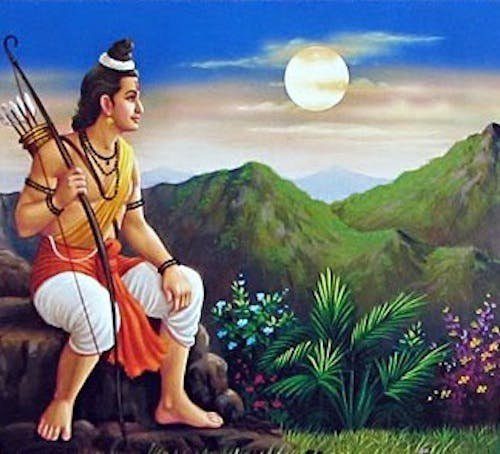
Lord Lakshmana is an important figure in Hindu mythology, especially in the epic Ramayana. He is known for his unwavering devotion, loyalty and devotion to Lord Rama who is considered to be an incarnation of Vishnu, one of the major deities of Hinduism. Lakshman is the younger brother of Lord Rama. He is the son of King Dasaratha and Queen Sumitra, and is considered the epitome of brotherly love and devotion. Lakshmana’s unwavering devotion to Lord Rama is legendary. He willingly followed Rama into exile, served and protected him throughout their years in the forest, and played a key role in Rama’s rescue of his wife Sita from the demon king’s hunt for Ravana
Unknown Facts about Lord Lakshmana:
1. Lakshmana's Rebirth as Balarama
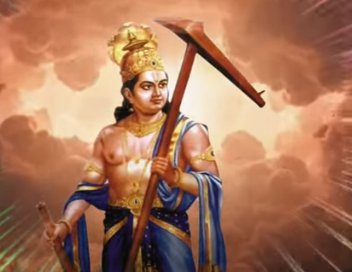
In Hindu mythology, there exists a belief centered around Lakshmana, the younger brother of Lord Rama. It is said that at one point, Lakshmana harbored a deep desire to switch his role with that of his elder brother. He firmly believed as the younger sibling, he was obliged to obey every command issued by Rama. This profound wish resulted in their subsequent incarnations witnessing the reversal of their roles.
RephraseLord Vishnu, known as the incarnation of Rama, later assumed the earthly form of Krishna. In this divine exchange, his loyal companion Shesh Naag transformed into Balarama, serving as his elder brother. This intricate connection reveals how these celestial beings interacted and seamlessly transitioned between their respective incarnations.
2. Lakshmana never saw the face of any lady(including Sita Mata) for 14 years
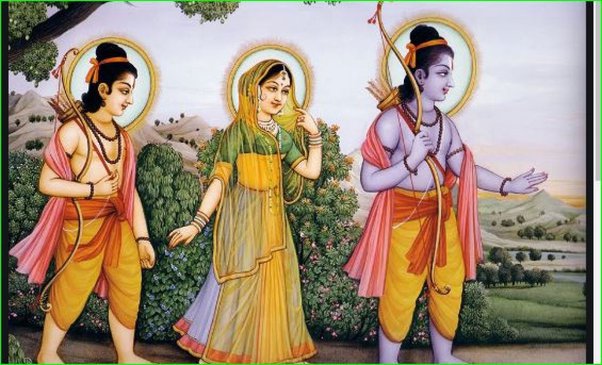
During the 14 years of exile in the forest, Lord Lakshmana fulfilled incredible vows. He swore never to cast his eyes on any woman, He never saw Sita Mata’s face and always gazed at her feet for the entire duration of their exile. This vow was a demonstration of Lakshman’s unwavering devotion to his brother Rama and his respect for the purity and loyalty of his sister Sita. Lakshman wanted to maintain his celibacy and concentrate on serving and protecting Rama and Sita without any distractions. This vow reflects the high moral and ethical standards of the characters in the Ramayana and emphasizes the sense of duty (dharma) and restraint. Lakshmana’s vow of devotion and loyalty to Lord Rama is often celebrated in Hindu mythology as an example of unwavering devotion and sacrifice.
3. Sacred Vow: How Lord Rama's Promise Led to Lakshman's Death
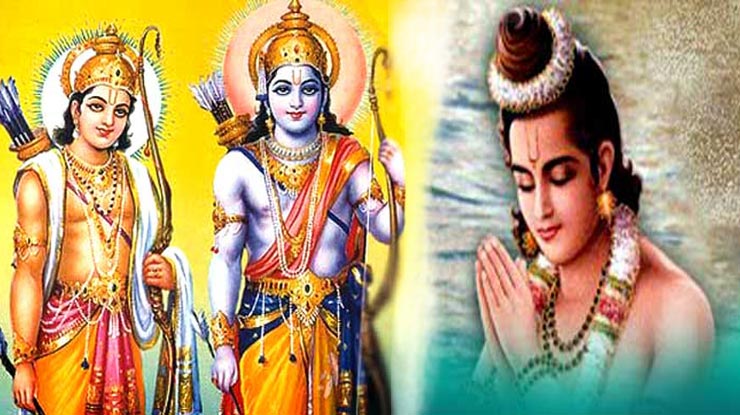
As the time drew near for Lord Rama to return to his heavenly abode in Vaikuṇṭha, an encounter with Yama, the god of death, became inevitable. Yama wanted to remind Rama that he was leaving soon and that Rama had invited him for a private conversation. To prevent any interference in their private discourses, Rama assigned his devoted brother Lakshman to guard the room. However, there was an unexpected twist. Sage Durvasa, known for his quick temper, expressed a desire to meet Rama. At first Lakshmana politely declined the sage’s request, but Durvasa insisted and even threatened to curse Ayodhya. Faced with the problem of protecting Ayodhya and respecting the wishes of the sage, Lakshman chose to interrupt the conversation between Rama and Yama to fulfill Durvasa’s request.
Unfortunately, as a result of this decision, Lakshman made great sacrifices to fulfill his promise to Rama. He went to the banks of the holy river Saryu and gave up his life. Lord Vishnu (the divine form of Rama) felt it necessary for Lakshmana to return to the form of a serpent named Shesha Naga before completing his earthly journey and returning to Vaikuṇṭha. Lakshmana’s selfless actions and devotion exemplify the deep values of sacrifice, duty and loyalty found in Hindu mythology and continue to be celebrated as an enduring symbol of brotherly love and unwavering devotion.
4. Lakshman is also known as “Gudakesh” because he did not sleep for 14 years

Lakshmana is indeed called “Gudakesha” because of an extraordinary feat he performed during Lord Rama’s 14-year exile in the forest. “Gudakesh” translates as “conqueror of sleep” or “one who has defeated sleep.” Lakshmana’s brother’s unwavering devotion and devotion to Lord Rama was so deep that he vowed not to sleep for the entire duration of Rama’s exile. This devotion shows that he was alert and turned day and night to protect Rama and Sita. The ability of Laxman to lie dormant for 14 years showed unparalleled loyalty and devotion towards his elder brother and sense of duty. It is a testament to his unwavering determination and selflessness towards Rama and Sita that he protected Rama and Sita during their captivity, which made the title “Gudakesh” a worthy and respected name for him
5. Conflict with Dashratha, Bharata, Parshurama
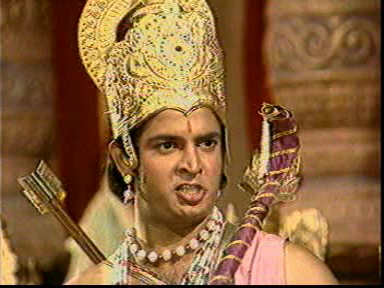
Lakshman’s unwavering loyalty and fierce devotion to Lord Rama often brought him to the brink of conflict with those who seemed to oppose his beloved brother. Here are three such examples:
Conflict with Dashratha: Though Dashratha was the father of Lakshmana, he was very angry with him. Lakshman believed that Dasaratha’s actions were unjust, as he seemed to prefer the woman’s wishes to his duty towards his son.
Meeting Bharata: During Rama’s exile, Bharata came to meet Rama hoping to persuade him to return home. However, Lakshmana initially thought that Bharata’s intentions were hostile and he was ready to defend his brother by raising weapons.
Parasurama’s confrontation: At Sita’s swayamvara (where she was choosing a husband), Lord Rama misjudged Lord Shiva’s divine bow, angering the sage Parasurama. Parasurama threatened Rama to kill Rama, while Lakshmana engaged in battle in unwavering defense of his brother.
In each of these situations, Lakshmana’s fierce protection of Lord Rama often brought him into conflict. But Lord Rama’s wisdom and peace prevailed and he intervened so that understanding and peace prevailed over confrontation These events reveal the depth of Lakshman’s love and devotion for his brother and Rama’s display of power allows him to maintain unity.
